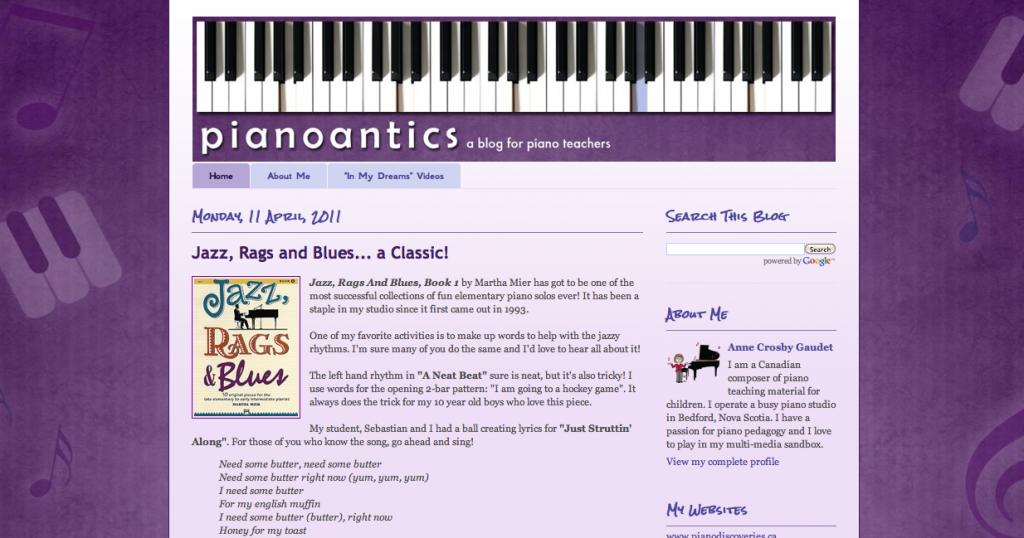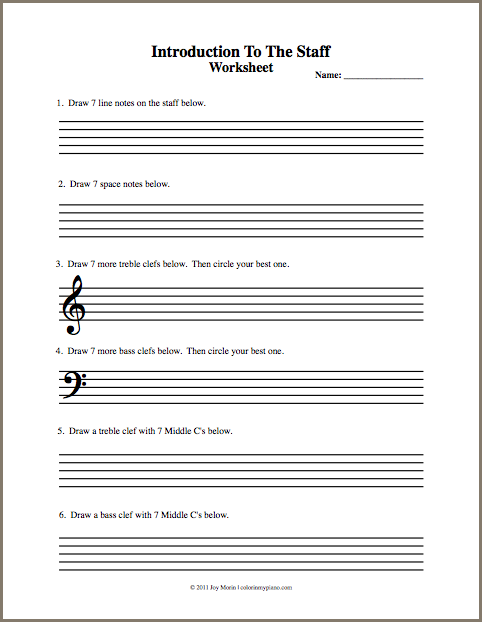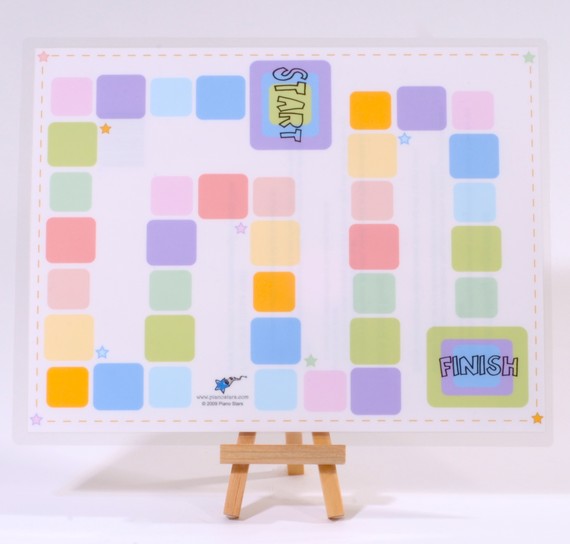- Piano Antics blog | Anne Crosby from the fabulous PianoDiscoveries.ca has started a blog! You do NOT want to miss this.
Year: 2011
2011 MTNA Conference | iPods, Guitar Hero, And YouTube. Oh, My!
I just love the title for this session!
TUESDAY @ 2:15pm: iPods, Guitar Hero, And YouTube. Oh, My!
This session was given by Samuel Holland and Kristin Yost.
Sam Holland began by talking about the world of the student and the world of the teacher (represented by two big circles on the powerpoint slide). Our responsibility as teachers is to move our world towards theirs until they intersect, so learning can take place.
One important method of intersecting the student’s world is through technology. The average teenager spends about 36 hours a week using technology. Students are now beginning to spend more time online than they do watching TV. The top activity they spend time doing is messaging – and second is downloading music (this is where we come in!).
Reasons teachers give for not utilizing technology with their students:
- Costs too much
- Too complicated
- Detracts from real learning Continue reading “2011 MTNA Conference | iPods, Guitar Hero, And YouTube. Oh, My!”
2011 MTNA Conference | The Royal Conservatory/Achievement Program
TUESDAY at 1pm: The Royal Conservatory: Celebrate Student Success: Recognizing Student Achievement Through Meaningful Assessment

This session celebrated the recent collaboration between Carnegie Hall and the Royal Conservatory to promote The Achievement Program (previously the National Music Certificate Program) as a national standard in the U.S. A number of individuals who are actively involved with this program spoke about the features and advantages of this program.
Marvin Blickenstaff commented on the purpose of a national standard to establish a clear, consistent meaningful structure to piano education. He also mentioned about the wonderful repertoire and supplemental materials available. The Celebration Series, in fact, won the Francis Clark Keyboard Pedagogy Award in 2007 for its comprehensive scope, quality, handbook for teachers, and supplemental books (read more here).
Nest, Andrew Hisey talked about the technical/essential skills that The Achievement Program helps to develop in the student. The Achivement Program tests ear and sight skills, rudiments (scales, arpeggios, chords, etc), sightreading, rhythms, and technique. There are many excellent supplemental materials for teachers to use with their students to prepare for these areas of testing.
Janet Lopinski indentified The Achivement Program as a tangible tool box for the teacher because it supports and reinforces musicianship skills. Having a third party assesment is also valuable for the teacher to assess his/her own effectiveness. Janet also talked about the written theory tests that are part of The Achievement Program which are intended to ensure music literacy and understanding of how music is constructed.
Sheila Vail is a Cincinatti teacher who has had great success with the NMCP/Achievement Program in her studio. She says to look at the results: She enjoys having a more structured and leveled way to teach sightreading and ear training. She loves the clear leveling, various styles of music, and comprehensiveness in general. She found that parents loved it, especially the quality of the assessment and the beautiful language of the adjudicators’ comments. She found that students in her studio seemed more likely to take lessons longer and strive to higher levels. She also feels that she has become a better teacher as a result of using this program.
From the comments of these various individuals, there seem to be many benefits to using an assessment program such as The Achievement Program! What are your thoughts?
2011 MTNA Conference | Connecting With Your Piano Technician
TUESDAY @ 11am: Connecting With Your Piano Technician
 This session was given by Clarence Zeches, a RPT (Registered Piano Technician) from Kansas City.
This session was given by Clarence Zeches, a RPT (Registered Piano Technician) from Kansas City.
Piano technicians must undergo rigorous testing before they can become RPTs. Zeches discussed some advantages of connecting with a RPT in your area. Here are a few:
- Getting your piano tuned the recommended two times a year. The more regularly you have your instrument tuned, the longer it is likely it stay in tune between tunings.
- Recommend your trusted RPT to your students to have their pianos tuned and to ensure they have quality instruments.
- When looking to upgrade your piano, you can pay to have a RPT look at a piano for you (if you are shopping on Craigslist, by newspaper ads, etc.). It generally costs $25-100 for this service, depending on the technician and the number of miles to travel.
Visit ptg.org to find a RPT near you and to download a flyer about caring for your piano.
2011 MTNA Conference Session Notes Index
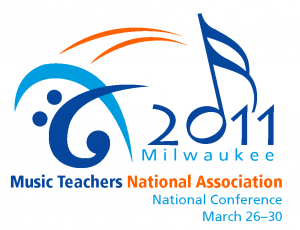 Today and tomorrow, my notes from the MTNA Conference a few weeks ago will be posted here for you to enjoy! Here are the sessions I attended during my short 24 hours at the conference:
Today and tomorrow, my notes from the MTNA Conference a few weeks ago will be posted here for you to enjoy! Here are the sessions I attended during my short 24 hours at the conference:
- MONDAY @ 1pm: G Hele Verlag: Henle Urtext Editions–Music Is Our Passion
- MONDAY @ 2:15pm: Smart, Single, Successful! Effective Business Strategies For Young Professionals
- TUESDAY @ 11am: Connecting With Your Piano Technician
- TUESDAY @ 1pm: The Royal Conservatory: Celebrate Student Success: Recognizing Student Achievement Through Meaningful Assessment
- TUESDAY @ 2:15pm: iPods, Guitar Hero, and YouTube. Oh, My!
If you’d like to read about what some of the other sessions were about, visit Natalie’s Music Matters blog to see her session notes! I see that Marcia Vahl also has blogged about the sessions she attended. If you have a link to share too, please leave a comment below!
I can’t forget to mention that the highlight of the whole conference for me was meeting some of my virtual friends for the first time ever! It was wonderful to meet some of my readers too — you know who you are! Natalie blogged and took a few pictures of our get-together which you can view here.
To those of you who also attended the conference — what was your favorite session?
2011 MTNA Conference | Business Strategies for Young Professionals
MONDAY @ 2:15pm: Smart, Single, Successful! Effective Business Strategies For Young Professionals
This session featured a panel of three young professionals moderated by Karen Thickstun. Each panelist shared their story to begin:
- Rebecca V. Baker – After graduating with her DMA in Piano Pedagogy, Becky taught at the college level for a few years before moving to the midwest to teach private lessons and group classes at Meridian Music, a Steinway distributer in Indiana. She believes in creative business management, which she explained as having a beneficial alliance and strong administration. She advises having a clear vision and taking advantage of (and not underestimating the power of) free marketing.
- David Husser – After graduating with his MM in Music Education with a Piano Pedagogy focus, David moved to Traverse City, Michigan to fill in teaching another teacher’s studio for a year. He eventually took over the studio completely and now does a variety of things including teaching adjuct at a community college, accompanying a high school choir, and working a church job. He enjoys the variety. David advises utilizing a mentor to learn the ropes and find guidance for the future. Continue reading “2011 MTNA Conference | Business Strategies for Young Professionals”
2011 MTNA Conference | Henle Urtext Edition Session
Well, I’m FINALLY getting around to posting my notes from the 2011 MTNA National Conference! Here’s my notes from Monday, March 28:
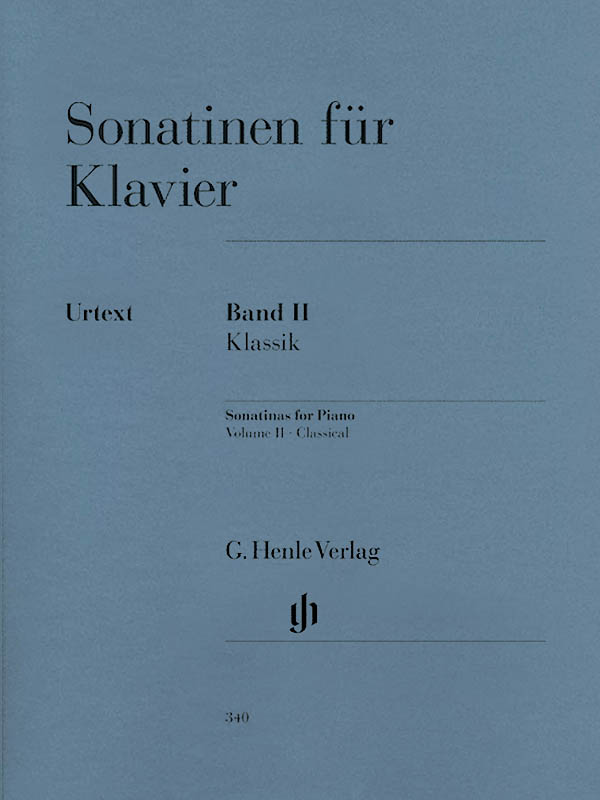 MONDAY @ 1pm: G Hele Verlag: Henle Urtext Editions–Music Is Our Passion
MONDAY @ 1pm: G Hele Verlag: Henle Urtext Editions–Music Is Our Passion
Many people are familiar with the famous blue covers of Henle editions! This session was given by Henle editor Norbert Gertsch. Gertsch gave us a look into the history of the Henle publishing company and a peek into what the urtext editing process is like.
Henle strives to create editions that are both urtext and practical.
What is URTEXT and why is it important? Urtext editions consult a number of sources to try to create the most accurate edition according to the composer’s wishes. Urtext solves the problem of wanting to know what the Beethoven wrote, versus how Artur Schnabel says Beethoven’s sonatas should be played (for example).
Some ask, why can’t you just copy the composer’s original manuscript? Answer: It’s simply not that simple. Continue reading “2011 MTNA Conference | Henle Urtext Edition Session”
Wednesday’s Words of Wisdom
“The woods would be very silent if the only birds that sang were those who sang best…”
— Henry David Thoreau
Every Wednesday brings Words of Wisdom here at the Color in my Piano blog in the form of a musical quote or joke, intended to bring inspiration or humor to the middle of your week. Have suggestions? Send an email off to admin[at]colorinmypiano.com.
Forum Q&A | Being A Member of MTNA or Other Professional Organizations
 Our last Forum Q&A from two weeks ago (due to the conference) was all about dealing with rhythmic “simplification” of familiar tunes with students. If you haven’t read all the great responses yet, be sure to do so by clicking here! As always, it’s never to late to contribute your own thoughts if you haven’t already.
Our last Forum Q&A from two weeks ago (due to the conference) was all about dealing with rhythmic “simplification” of familiar tunes with students. If you haven’t read all the great responses yet, be sure to do so by clicking here! As always, it’s never to late to contribute your own thoughts if you haven’t already.
This week, I’d like to start a discussion about professional organizations (such as MTNA for the U.S. — international teachers, please tell us about what your country offers!).
Are you a member of a professional organization? If so, for how long have you been a member? Is it worth it? What is your favorite thing about being a member of MTNA or any other professional music teachers association? What other benefits can you list? Why do you consider it important to be a member?
If you are not currently a member of a professional organization, would you like to be in the future? What questions do you have about becoming a member?
Comment away!
Link Fixed
Thanks to everyone who pointed out the bad link to the new Introduction To The Staff worksheet I posted about this morning! It has now been fixed. Sorry about the confusion, and enjoy the worksheet! =)
Just Added: Introduction To The Staff Worksheet
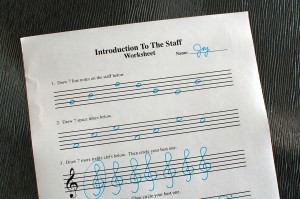 A new worksheet has just been added to the Printables > Worksheets page called:
A new worksheet has just been added to the Printables > Worksheets page called:
Introduction To The Staff Worksheet
This worksheet is appropriate for beginners who are ready to be introduced to staff notation. It is appropriate for use in both private and group settings.
Terms used in this worksheet:
- line notes
- space notes
- treble clef
- bass clef
- middle C
Students are instructed to draw the items from the list above onto the staff provided. This worksheet is great for use especially with visual and tactile learners, who benefit from drawing and seeing each symbol on paper.
To download the worksheet, click the link above and scroll down to the I’s.
 Introduction To The Staff Worksheet (28.6 KiB, 37,519 hits)
Introduction To The Staff Worksheet (28.6 KiB, 37,519 hits)
Enjoy!
March 2011 Giveaway Winner
Kathy! You are the winner of the Blank Board Game giveaway! Congratulations!!
Thanks to all who entered and left comments – I enjoyed reading them very much, as usual. If you are interested in buying your own Blank Board Game from Keri and Carolyn, click here to visit their store.
Happy weekend!


